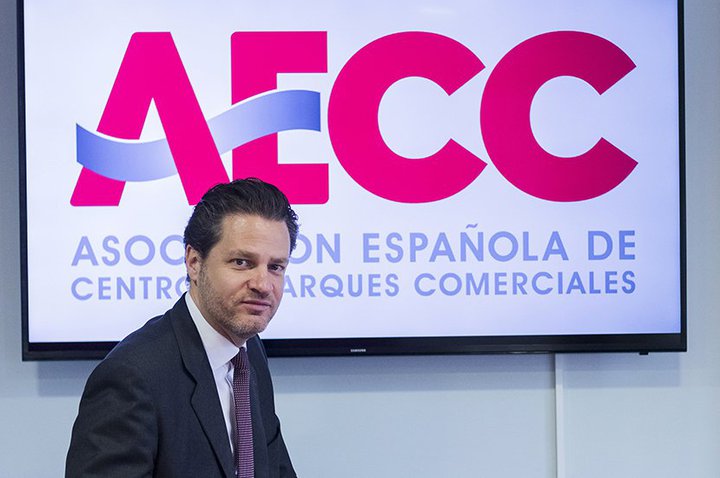Eduardo Ceballos, AECC President
The shopping centre and retail park segment in Spain showed resilience despite the impact the restrictions adopted to face the Covid-19 pandemic had on sales and affluence. The positive data is that the visitors’ average spending increased 7% when compared to 2019, according to the Asociación Española de Centros y Parques Comerciales (Spanish Association of Shopping Centres and Retail Parks) – AECC. Nevertheless, sales dropped to 33.392 million euro, around 28.9% less than last year and affluence dropped to 1.292 million people, 34% less yoy.
The segment consists of 567 complexes which represent more than 16.4 million sqm in GLA. It concentrates more than 33.300 shops and stores, of which 85% have less than 300 sqm. The average commercial density is around 345 sqm GLA per 1.000 inhabitants, in line with the countries around Spain.
This segment contributes with more than 10.447 million euro towards the Spanish GDP, representing 0.9% of the entire GDP and 6% of the service sector’s GDP. It creates around 790.000 jobs, around 54% direct and about 46% indirect.
Closed 27% of all business days
The measures against Covid-19 led shopping centres and retail parks across Spain, to be closed, with the exception of core activities, on average 27% of all business days. In some communities shopping centres and retail parks were closed up to 44% of all business days, as was the case in Castile and León, or 42% as was the case in Catalonia. For the AECC this situation caused retailers located in shopping centres and retail parks to be discriminated when compared to other commercial formats which were able to remain open longer. There were also other limitations such as: capacity, which was reduced between 25% and 70%, prohibition of using common areas, opening hours and travel restrictions.
In constant collaboration with the administrations, AEEC’s president, Eduardo Ceballos, has insisted that it is necessary to reopen with some normality and remarked it could be interesting to recover part of the lost business days with a certain flexibility so that retailers can have better expectations.
The forecast is that during the year’s second semester it will be possible to recover towards a situation close to normal and that until 2022 the 2019 levels of sales and affluence will not be reached.
The growth in average sales, 7% when compared to 2019, also shows new consumer habits, who now plan their shopping in shopping centres due to the restrictions. Visits are shorter, marked by the leisure restrictions and have lowered in terms of numbers for each group. The affluence peaks on Saturdays and national holidays have been less accentuated and visits have been more evenly spread across the week.
Signs of strength
Despite this situation, there are several signs which show the strength of this segment. First, we should remark that the shutdowns and restrictions led to agreements between owners and tenants on more than 95% of the cases, which shows it is a flexible segment, capable of auto-regulating quickly.
On the other hand, occupancy remained stable with drops below 4%, showing the robustness this commercial format has and its potential to recover when the crisis ends.
During 2020, six projects with a total combined GLA of 184.423 sqm were opened. There are currently 18 new projects to be opened until 2023, with a total combined GLA of 584.580 sqm more. This means that the average of six new complexes per year the segment has had since 2015, will be maintained. The new openings are spread across the country, with the highlight going to the Community of Madrid with 7 new projects and Andalusia with 4, besides Galicia, Catalonia and Extremadura.
Of these developments, 11 are shopping centres, a format which has proven to be particularly resilient against the current sanitary crisis, thanks, amongst other factors, to the fact that the activities which are developed mostly inside them have shown a more positive evolution.
In terms of investments and transactions, 11 operations altogether surpassed 1.351 million euro and have placed the segment back as one of most active within the real estate market. The number does not include capital used in shopping centres’ refurbishments.
Sanitary measures
Shopping centres have also made tremendous economic efforts to adopt the necessary protocols to make their areas safe against the coronavirus. In accesses and common areas alone, more than 80 million euro were invested, to which we must add the increase in operational costs and the measures implemented by the retailers.
Amongst the actions which were taken in shopping centres and retail parks, the highlights go to: counting systems to control real time affluence, extra staff to manage queues, installing gel dispensers, signage indicating directions and information to order people’s flow and circulation, strict daily continuous cleaning and disinfection, other information systems with recommendations and safety guidelines (such as the mandatory use of mask on all departments within shopping centres and retail parks) and improvements to the ventilation and air conditioned systems. Most of these sanitary protocols were audited and received certifications against Covid-19 from renowned certification companies.
AECC recalls that, since the beginning of the crisis, shopping centres and retail parks remained open, guaranteeing with full safety access to establishments declared as essential, despite almost all stores being closed, and proved they are «safe and trustworthy places to be in and to buy in».
AECC also recalled that the assets have a strong cost structure, since its professional management model encompasses very high fixed costs, regardless of the activity.
Nevertheless, the association considers that retailers located in shopping centres were discriminated against «creating a serious economic and reputational prejudice and leaving them at a disadvantage against street retailers».
In 2021 the segment will seek to consolidate the consumer’s trust, reinforce the visiting experience and boost the omnichannel model so as to grow thanks to the resilience it has shown.
